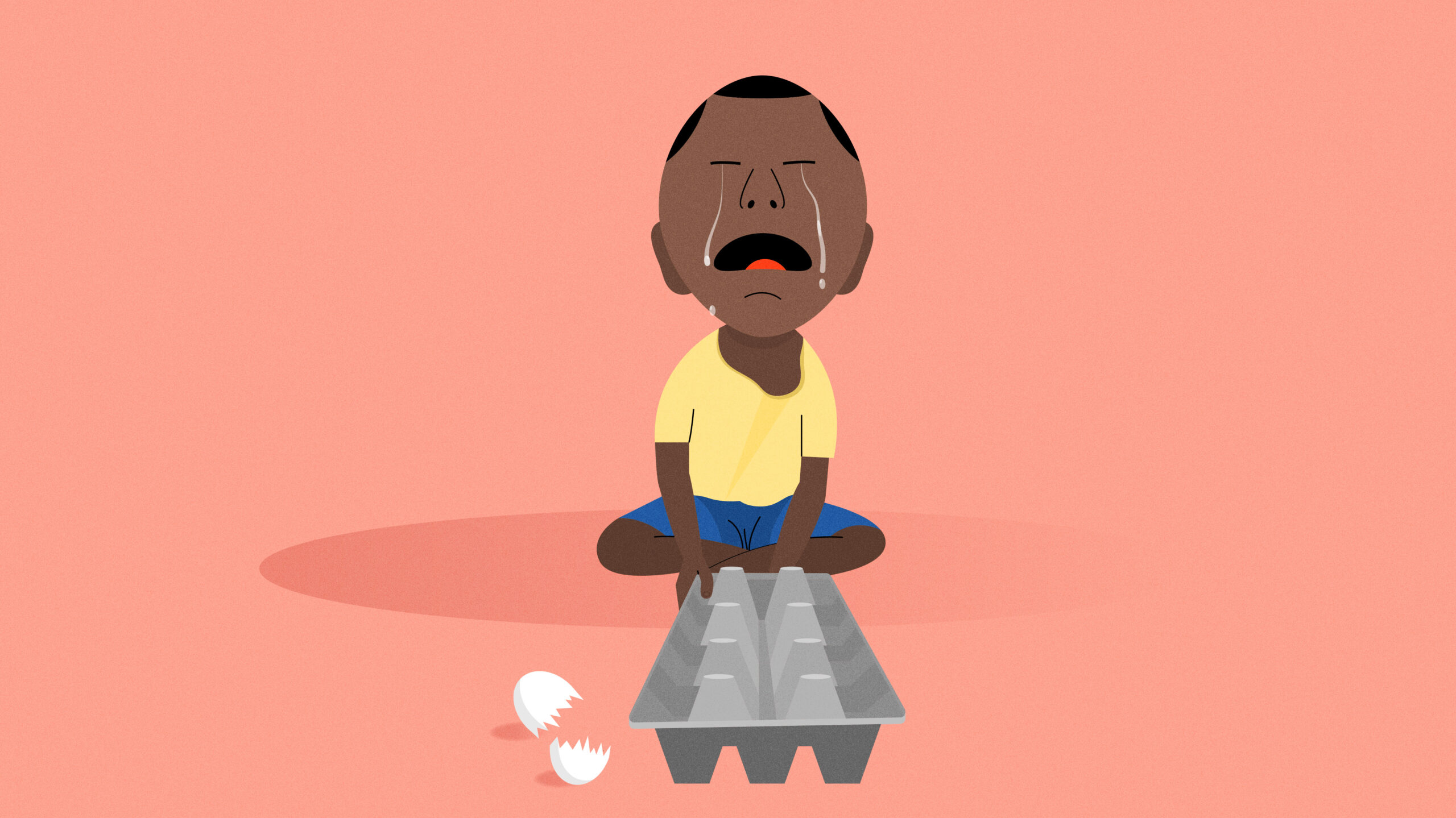Features
Will Nigeria’s Future Generations Face a Malnutrition Crisis?
Now, many are cutting back on protein-rich foods like eggs, fish, and chicken. With a crate of eggs now costing over N5000, what was once considered the cheapest source of protein for low-income families is now a luxury.

My friend, AbdulGafar, has stopped buying branded vegetable oil because it has become too expensive. “I now buy aburo,” he says, describing the vegetable oil sold in unsealed bottles, arguably unhealthy and one that makes your soup shine teeth no matter how much you pour into it because it disappears in no time and doesn’t seem enough. We were discussing how unprecedentedly expensive everything has become. He says he fears that the coming generation will be malnourished because many people are now settling for unhealthy products because they can’t afford healthy ones.
Since President Bola Tinubu announced the removal of fuel subsidies last year, the prices of fuel have plunged the country’s economy into an abysmal form, the inflation rate has risen to its highest in recent times and people’s purchasing power keeps reducing almost every day. Since the last #EndBadGovernance protest in August, the cost of living has become worse. Every day, Nigerians are advised to buy whatever they can afford today because tomorrow, the amount might not just be enough.
The consequences of the current economic crisis stretch far beyond immediate discomfort. If this trend continues, future generations in Nigeria will face a severe risk of malnutrition, which could have devastating long-term effects. Families who once prioritised balanced diets are now forced to cut back on essential nutrients, settling for cheap, unhealthy alternatives like AbdulGafar’s aburo vegetable oil. But oil is just one small part of the larger picture. Nutritional foods such as fruits, vegetables, and most importantly, protein sources are slipping out of reach for many.
Protein is essential for human health. It plays a vital role in tissue development and repair, supports the immune system, and is crucial for growing children. Insufficient protein intake can lead to stunted growth, weakened immunity, and cognitive difficulties. A lack of protein can reduce physical strength and overall energy, making it challenging to function effectively in daily life.
Nigeria already faces unemployment and limited economic opportunities, and a workforce weakened by malnutrition could have serious consequences. Future generations may struggle academically and health-wise if their families cannot access the basic nutrients necessary for survival. Moreover, the effects of inflation extend beyond malnutrition; they also impact children’s education and cognitive development. Without proper nutrition, children often have difficulty concentrating and learning, which could hinder their future opportunities.
Now, many are cutting back on protein-rich foods like eggs, fish, and chicken. With a crate of eggs now costing over N5000, what was once considered the cheapest source of protein for low-income families is now a luxury. The consequences of this are seen in many Nigerian homes today, where meals are becoming less diverse, lunch getting scraped and meals becoming nutrient-absent.
The high cost of living crisis we are experiencing today is far more sporadic and unpredictable compared to past economic crises. On X (formerly Twitter), a tweeter cannot believe we used to buy an egg for N20 and another cannot believe a sachet of pure water used to cost N5. These are not even far times out. In 2019, I bought four eggs for N100. Before, when we say good times or olden days, it used to be the 1990s and early 2000s, times that are as far removed from the present. But today, olden days could be as recently as 2019 or 2020. The swift deterioration in living standards over just a few short years is a sign that the crisis has accelerated beyond what many could have imagined. Nigerians are now nostalgic for a time when life, though still challenging, felt more secure. As the cost of living continues to rise and incomes fail to catch up, the future for the next generation appears even more bleak — unless immediate and effective reforms are introduced. Unless, because we don’t know if or when.






















